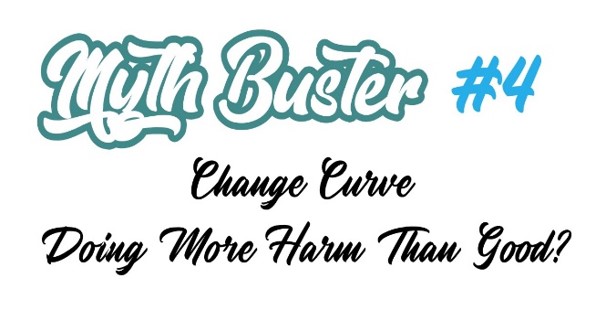THE CLAIM
Kulber-Ross (1969) claim that people go through specific stages of denial, anger, bargaining, depression, and, acceptance (DABDA model) after the death of a loved one.
THE EVIDENCE
To support their claim, Kulber-Ross use a collection of case studies taken from conversations with dying patients. This type of evidence is very low down on the evidence hierarchy. Five empirical tests show little support for the model with one showing that only 11% of people go through the DABDA stages. The only empirical evidence of a ‘change curve’ existing in OCM relies on retrospective case study consisting of 5 employee interviews over 1 day and analysis of the company’s financial results. With no statistical analysis the study attributes a 30% higher than expected financial loss solely down to the software implementation. The focus of the study is a poorly managed project – there is no evidence of any change management being applied.
THE VERDICT
Believing in DABDA result in ineffective support to people experiencing change because we believe it is a natural response to change rather than a consequence of poor OCM practices. Let’s ditch DABDA & adopt evidence-based approaches that are applicable to OCM and draw on social constructionism such as models of meaning making & CBT.
The References
https://www.ncbi.nlm.nih.gov/pmc/articles/PMC5375020/https://www.linkedin.com/pulse/debunking-change-management-myths-john-saunders/https://www.amazon.co.uk/Big-Change-Best-Path-Organizational/dp/0749469420/ref=sr_1_1?keywords=big+change+best+path&qid=1556285813&s=gateway&sr=8-1https://www.researchgate.net/profile/Jason_Holland4/publication/45658453_An_Examination_of_Stage_Theory_of_Grief_among_Individuals_Bereaved_by_Natural_and_Violent_Causes_A_Meaning-Oriented_Contribution/links/0fcfd512649d0b2fd2000000.pdfhttps://www.researchgate.net/profile/HAW_Schut/publication/46630969_Theories_of_grief_and_grieving/links/588c861545851567c93de93e/Theories-of-grief-and-grieving.pdf


